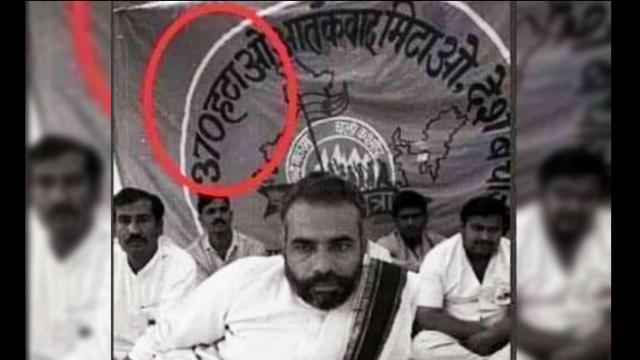Jana Sangh founder’s dream of ‘one India’ is finally a reality
- By : Anirban Ganguly
- Category : Articles

Asked if he would respect the Indian tricolour, Sheikh Abdul said, “Oh, of course, we will recognise it.” But Syama Prasad Mookerjee was not convinced. In Parliament, he responded, “The Union flag is there in spite of anybody, and that is the flag of free India.” When Abdullah then said “We will treat both flags (that of Kashmir and India) equally,” Mookerjee retorted, “You cannot do it. It is not a question of 50-50. It is not a question of parity. It is the question of one flag for the whole of India, India that includes Kashmir.”
This was the spirit that permeated Mookerjee’s struggle for abrogation of Article 370. Mookerjee firmly believed in the abrogation of Article 370. Mookerjee firmly believed in the need to find a solution to this challenge, he clearly understood that if left unaddressed, the issue would allow external forces and elements to interfere with India’s unity and progress. His efforts were stonewalled by the Nehru-Abdullah nexus, eventually leading to his treacherous incarceration and death in Srinagar.
The unifying slogan of Ek desh me do vidhan, do nishan, do pradhan, nahi chalenge, nahi chalenge that Mookerjee chanted till his final days has finally been realised. This was one of the core demands of the Jana Sangh and BJP, with legions of its workers struggling and striving for it.
On future India’s political will and capacity to remove the temporary provision, Sardar Patel had observed in his final days that it would depend on the “strength and guts of the Indian government” of the future. “If we cannot have confidence in our own strength, not deserve to exist as a nation,” Patel had noted.
That guts and that confidence has again been demonstrated today with the placing of the Constitution (Application to J&K) Order, 2019, notification in Parliament. Both Narendra Modi and Amit Shah are clear that India shall not succumb to blackmail and that her unity and integrity are not up for barter or negotiation.
It is a culmination of a long, relentless, often lonely struggle waged over nearly seven decades. For Jana Sangh and later BJP, removal of the ‘special status’ given to Kashmir was a founding and driving article of faith. Jana Sangh’s first manifesto stated that “to end the state of uncertainty about Kashmir’s future, it should be integrated with Bharat like other states and not given any special position”. Over the years, Sangh carried out an unceasing struggle for the removal of Article 370.
Pt Deendayal Upadhyaya and his colleagues launched many movements demanding the divisive provision be scrapped. Upadhyaya himself wrote on the need for complete integration integration of J&K with the rest of India. The eighth chief of Jana Sangh, Dr Raghuvira, wrote of Kashmir as our puny a-bhumi and spoke of the need to “spread the knowledge” that “the body and soul of Kashmir belong to the whole of India”.
BJP’s historic Ekta Yatra in 1991, from Kanyakumari to Kashmir, with the message of India is one, had the objective of unfurling the tricolour at the Lal Chowk in Srinagar. With Modi as main strategist and organiser, the Yatra reinforced the consciousness of unity. When it became the subject of “hue and cry” in LS on December 11, 1991, AB Vajpayee had asked whether it was “wrong to say that the entire country from Kashmir to Kanyakumari is one? Is it wrong to repeat the resolution that India cannot be allowed to be divided further at any cost? Is it objectionable to say that Kashmir is an integral part of India?”

















